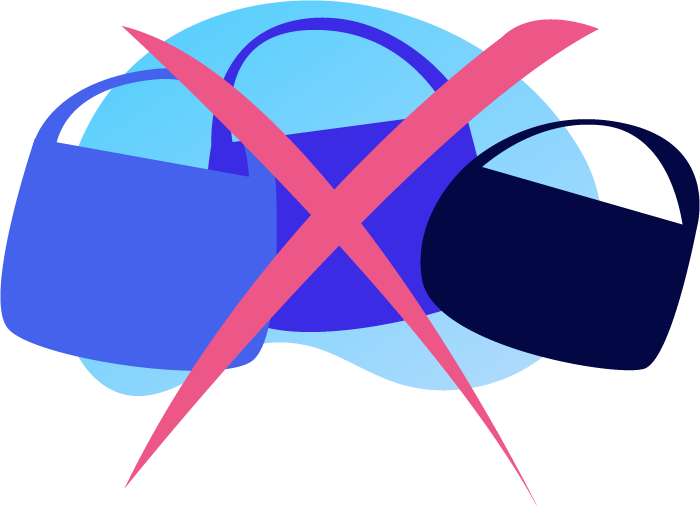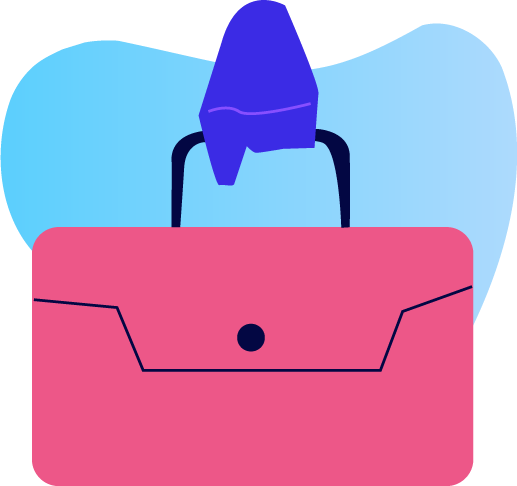PLANNING & ACHIEVING
YOUR FINANCIAL GOALS
A goal broken down into STEPS becomes a plan.
Putting your plan into ACTION
can make your DREAMS come true.
It is true that money doesn’t solve every problem and, equally, that money cannot buy happiness. But it is also true that debt and poverty create problems, while money can help you achieve life-changing goals. Take some time to list your dreams and goals – and make them attainable by putting deadlines to each (whether 5 months, 5 years or 50 years).
Some will be SHORT-TERM FINANCIAL GOALS (settling your smallest debts, for example, or having enough in your account for an exotic holiday). You’ll also find you have MID-TERM GOALS (a more reliable car, perhaps, or a hefty deposit on your first house) plus LONG-TERM GOALS (like being totally debt free or ensuring a comfortable retirement).
In writing down these dreams and putting deadlines to them, something magical starts to happen: they start moving closer to reality. Get your unique goals onto paper and keep this somewhere they will keep motivating you.
THE 50/30/20 FORMULA
This simple formula is one popular way that monthly income
can be divided for allocation into three broad categories

50%
NeedsExpenses necessary for survival, like rent, groceries, school fees and utilities. Minimum debt payments (on your credit card or car finance, for instance) also fall into this category, takeaways do not!

30%
WantsA new smartphone or handbag, a romantic dinner out, tickets to the Dubai Opera… you deserve to enjoy these little extras from time to time, as long as you can afford them.

20%
SavingsEvery month, at least 20% of your income should go towards savings and investments. These may be extra debt reductions (over and above your minimum due payments), money towards your emergency fund, or contributions to an investment fund account.
WHAT SHOULD YOU DO WITH YOUR EXTRA CASH?
We put in hours and hours of work to earn our money, but once we stash some of these funds as savings in the right places, our money can start to work for us instead! Be the boss of your money and be sure about where you want to use it. Once you’ve made the decision to save, although your priorities might overlap, your general order of goals might look something like this:

Get rid of any debt
One approach is to start with the smallest for a quick, motivating win. One down, yes! Now, add that monthly repayment to your next debt to reduce it faster… and so on. Debt is expensive, costing much more in the long run than the original loan. By eliminating monthly debt repayments you will free up cash to stash.

Establish an
emergency reserve
It is often the unexpected costs that set us back. Developing and maintaining an emergency fund of 3- to 6-months’ worth of expenses can cushion you against the shock and cost of expensive debt. Keep these funds in a separate interest-earning savings account that can be easily accessed.

Build up a
rollover salary
Hold onto a little of your income every month until you reach a point where you are spending last month’s salary on this month’s expenses. It will take a while but should be easy to maintain once the funds are there – and will give you huge confidence and security to start on the real money growth.

Get growing
Now you can start to build up your wealth. There are various ways to put your funds to work, increasing their worth through your choice of passive earning vehicles, from carefully selected, low risk investment funds to real estate assets that can earn you a passive income.
THE URGENCY OF
AN EMERGENCY FUND
Everyone needs an emergency fund. Aside from paying off your debts, it should be your most immediate financial goal. An emergency fund is money that you build up and keep aside to use ONLY in case of a costly surprise: your car breaks down in the middle of nowhere, your best friend suddenly announces that she’s getting married in London, or you suddenly find yourself out of a job. It’s life. Things happen. But if you stash some cash, you won’t have to borrow to fund these twists and turns when they come at you.
When you think you can’t possibly
find the extra money to save…

Make a start by selling some stuff! (Like that guitar or jet ski that’s collecting dust.)

Put your budget under the microscope and cut back on any luxuries you can do without for a while

Get entrepreneurial and use your talents to take on some part-time extra work

Add an emergency fund every month to your budget. You’ll be surprised how quickly you can grow your fund just by putting aside a little every month.
HOW MUCH
IS ENOUGH?
Experts advise us to aim for a 3- to 6-month emergency fund. In other words, enough to cover all your regular expenses for that amount of time. It’s not easy, but it’s important that you make a start – as much as you possibly can – and then beef up those savings as often and as fast as you can until you’ve reached your calculated goal.
What is the best place to keep an emergency fund?
Keep your emergency fund separate from the working cash in your current account to avoid temptation and confusion. Your emergency savings need to be liquid though – meaning that you need to keep them some place they can be accessed quickly and easily – so good options would be a low-cost savings or money market account.
RETIREMENT IS
CLOSER THAN YOU THINK
Emiratis working in government and private sectors are eligible for retirement benefits and expatriate employees receive end-of-service entitlement in the UAE’s gratuity scheme. However, according to a recent survey, most residents in the UAE are struggling to manage their finances effectively and are not putting aside enough for their ‘golden years’.
While retirement might seem too far in the future for you to worry about, there are two reasons why you should save:
O1 The future you would like to be living at least as comfortably as you are today
02 If you’re really determined to save and grow your money, you could create the financial freedom to retire while you’re still young enough to follow new passions!
The UAE’s tax-free salaries is one of the reasons many expatriates choose to work here – so, with a little discipline, it makes sense to take advantage of extra cash in your paycheck by setting up a retirement fund. One way to do this is by opening an offshore investment account with a variety of index-tracking exchange traded funds (ETFs).
